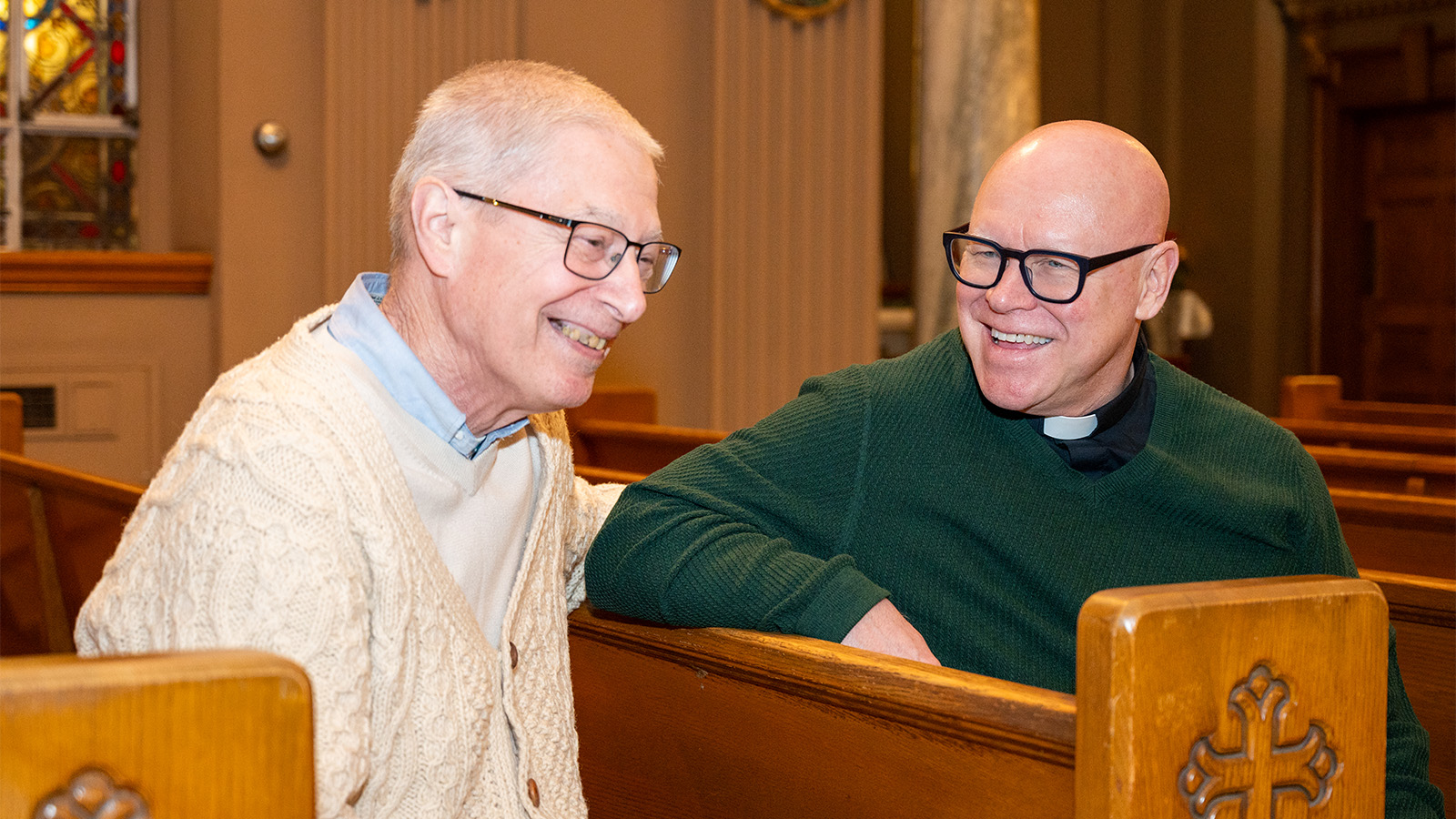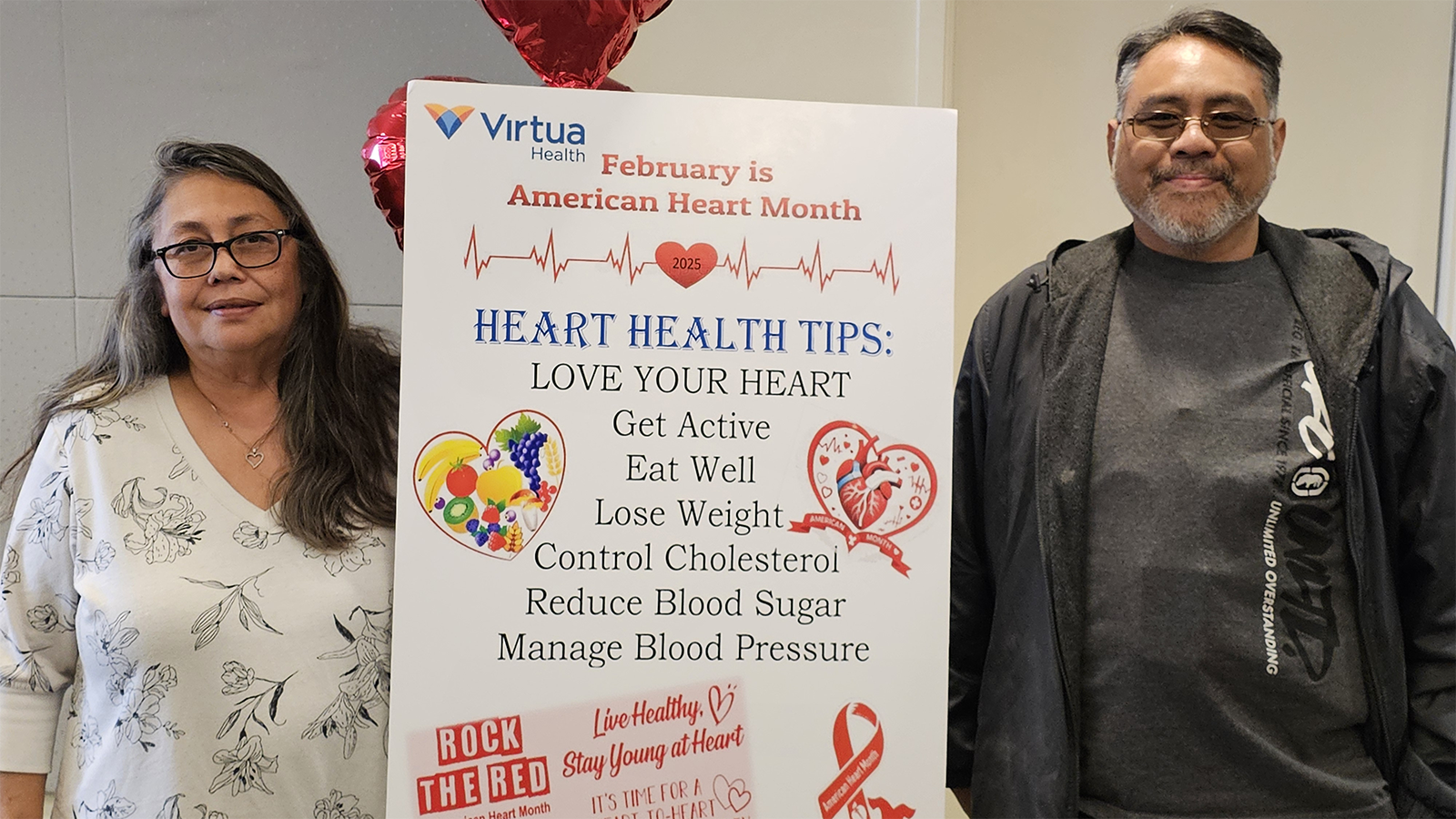Can You Die of a Broken Heart?
Cases of broken heart syndrome—sudden, intense chest pain triggered by an emotionally stressful event—are on the rise. Here’s what you should know.
By Vivek Sailam, MD, Cardiologist — Virtua Cardiology
You’ve probably read stories like this. A long-married husband and wife die within hours of each other, their love so great that they are unable to live apart.
Is it possible to die from grief?
Yes, but not usually. Broken heart syndrome—also called stress-induced cardiomyopathy or takotsubo (the Japanese name for an octopus pot that resembles the left ventricle) cardiomyopathy—is a condition in which intense emotional or physical stress can cause rapid and severe heart muscle weakness.
Cases of stress-induced cardiomyopathy are on the rise, especially in women ages 50 to 74, according to a recent study published in the Journal of the American Heart Association. Incidences have particularly gone up since the start of the COVID-19 pandemic.
Broken Heart Breakdown
During an episode of stress-induced cardiomyopathy, portions of the left ventricle temporarily enlarge and stop pumping effectively. The rest of the heart continues to function normally or even with more forceful contractions.
The condition can be mistaken for a heart attack, as there are similar symptoms, including chest pain, shortness of breath and low blood pressure. Tests may show changes in rhythm and blood substances that are typical of a heart attack, but the arteries are not blocked.
As you can’t tell whether you are having a heart attack or stress-induced myopathy, it is vital to seek emergency treatment. Under the care of an experienced cardiac team, most people with stress-induced cardiomyopathy make a full recovery within weeks, with no long-term heart damage.
Mind-Body Connection
Broken heart syndrome is triggered by a physical or emotional event, such as the death of a loved one, a medical diagnosis, losing or winning money, a surprise party, or sustaining an injury.
A surge adrenaline and other stress hormones overwhelm and “stun” the heart. The arteries narrow, leading to a temporary decrease in blood flow to the heart. Adrenaline also may bind to the heart cells, causing a large amount of calcium to enter the cells and not function properly.
While chest pain and shortness of breath are the most common symptoms, some people may also experience irregular heartbeats (arrhythmias), heart failure, or cardiogenic shock. Cardiogenic shock occurs when a suddenly weakened heart cannot pump enough blood to meet the body's needs.
If the heart isn't pumping effectively, blood inside of it can become stagnant and clot, greatly increasing the risk of stroke. All of these conditions can be fatal if not treated immediately.
Who's at Risk?
So why doesn’t everyone who has something stressful happen to them experience broken heart syndrome?
You need other risk factors that make your cardiovascular system vulnerable to spike in adrenaline, such as high cholesterol and high blood pressure.
Both men and women can get broken heart syndrome. Most cases, however, are in middle-aged and older women. It’s not clear whether hormone changes occurring during perimenopause and menopause play a role.
Regardless whether it is stress-induced cardiomyopathy or a heart attack, if you experience symptoms like chest pain or shortness of breath, call 911 right away and get immediate medical attention. When it comes to your heart, every minute counts.Advanced Heart Care Right in Your Neighborhood
Virtua’s team of more than 100 cardiac experts provides comprehensive care, from medical cardiology to interventional procedures to advanced cardiac surgery. Appointments are available within 48 hours. Schedule an appointment with a Virtua cardiologist now.
There's So Much More to Explore
Discover expert insights, inspiring stories, health tips, and more by exploring the content below!

HeartTalk Magazine

Lifesaving Heart Care Creates a 'Bond That's Never Left Us'

How High Blood Pressure Affects Your Body

5 Interesting Facts About Your Heart

Get to the Bottom of Blood Pressure Numbers

CABG Surgery: What Women Should Know About Heart Health and Healing

When to Take Action for a Stronger Heart

Groundbreaking Renal Denervation Procedure Controls a Lifetime of High Blood Pressure

Patient Story: LVAD Mechanical Pump Strengthens Michael's Heart Function

Mitral Valve Surgery Keeps Yaneth Living the American Dream
Inside Look at Blood Vessels Aids PAD Treatment
Denise Davis: Pay Attention to Your Heart Health

Sweet Music: Trust, Teamwork Save Justin from Heart Attack

Complex Heart Surgery Nets James a Lifelong Friend

8 Key Steps to Better Blood Pressure Control

Signs You Should Get Treated For Vein Problems

One New Heart Valve Saves Two Lives in the Tritten Family

What You Need to Know About Heart Failure

6 Numbers Key to Keeping Your Heart Healthy

Five Mindfulness Tips That Can Help Heal Your Heart

Watchman Heart Device: a Technological Breakthrough for Blood Clot Prevention

Albert's Emergency Cardiac Surgery Is a 'Story of a Lifetime'

Love Your Heart: Essential Care Tips for Every Stage of Life

How Do I Measure My Blood Pressure at Home?

How Do I Improve My Cholesterol Levels?

3 Ways to Reduce Your Stroke Risk

How the Unique Stages of a Womans Heart Affect Her Health

Can Your Gut Health Affect Your Heart?
Advanced Heart Failure Therapies Get Bernadine Back to Full Speed

Keeping the Beat: Advanced Heart Surgery for Aortic Aneurysm

Heart-Healthy Summer Recipe: Hummus and Veggies

4 Delicious Heart-Healthy Recipes Perfect for Summer

Heart Healthy Summer Recipe: Dessert Parfait

Heart-Healthy Summer Recipe: Pear and Walnut Salad

Heart-Healthy Summer Recipe: Terrific Turkey Burgers
Atrial Fibrillation and Stroke: What's the Connection?
Heart Tests Your Doctor May Order
Managing Pregnancy for Mothers With Heart Conditions

Heart Healthy Recipe: Basil Pesto Pasta With Seared Vegetables

Heart Healthy Recipe Chocolate Avocado Chia Pudding
Keep Your Heart Rhythm in Check With Your Smartwatch
Mind Your Meds for Blood Pressure Risks
Magic Pill for Heart Health? Cut 300 Calories a Day
3 Smart Ways to Boost Your Heart Health
3 Best Exercises For Heart Health

Get Your Heart Pumping With These 25 Workout Songs
Your Chest Pain: Heartburn, Heart Attack, or Something Else?
3 Heart Healthy Recipes to Win Valentines Day
How Work and Home Stress Can Affect You
Why Improving Your Health Is Going To The Dogs And Cats
Why Younger Women Need Start NOW To Safeguard Their Hearts From Heart Attacks
Can You Die of a Broken Heart?
Mitral Valve Surgery Opens Doors for Improved Quality of Life
6 Healthy Habits to Start in Your 20s for Better Lifelong Health
Do You Have a Fatty Heart?
Get Pumped! Assist Devices Can Improve Heart Failure Symptoms
A Cardiologists Advice on Heart-saving Emergency Cardiac Care
Virtua Doctor’s Experience Is a Warning for All About COVID-19 and Strokes
You May Feel Fine, but Gregory Says "Don't Skip Your Medical Care"
In Sickness and in Health: Couples Often Share Heart Disease Risk
"Reduce Your Heart Disease Risk With a Plant-based Diet"
Hybrid Robotic Heart Surgery and Valve Replacement Restores Quality of Life
Can Marijuana Hurt Your Heart Health?
6 Tips for Restoring Your Heart Rhythm
Eat Smart for Your Heart
Cardiac Rehab: Strengthening Your Heart After Leaving the Hospital
Your Heart Needs A Good Nights Sleep
Are You at Risk for AAA—the Silent Killer?
The Cardio Oncology Team Protects Your Heart During Cancer Treatment
Get Relief From Painful Varicose Veins This Summer
Exercise Your Way to a Stronger Heart
Fish Oil: A Good Catch or a Scam?
My Heart Seems to Skip a Beat - Should I Be Worried?
Menu Planning? Try These 5 Heart-smart Substitutions

5 Health Risks Tied to Weight

Heart-Healthy Recipe: Maple Orange Salmon With Mango Salsa
Do Not Wait to Get Help When a Stroke or Heart Attack Strikes
4 Reasons Why Heart Patients Should Follow COVID 19 Safety Guidelines

